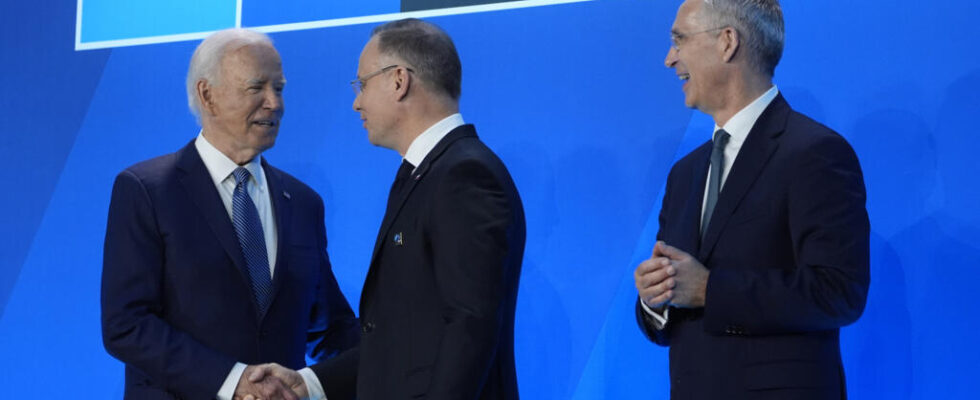At the NATO summit in Washington, the leaders of the 32 countries of the Atlantic Alliance are discussing the question of Ukraine’s membership and the military aid it should provide to face Russia. Concerned about a possible Russian offensive, NATO member Poland announced on Wednesday, July 10, that it would strengthen its military presence on its borders with Russia and Belarus.
2 min
The Polish authorities have set an ambitious goal: to triple the number of troops that can be deployed on the Polish borders – with the Belarus to the east and the Russian enclave of Kaliningrad to the north of its territory. Currently, ” nearly 6,000 soldiers ” are stationed on these borders, says the chief of staff of the Polish army, General Wieslaw Kukula.
A figure that could almost triple soon to reach ” eventually, up to 17 000 ” soldiers. Some 8,000 of them are said to be stationed there and ” 9,000 » would be mobilizable within 48 hours.
The rapid reaction force was presented on Wednesday by the Chief of Staff of the Polish Army. Its mission will be to support the border guards in the event of possible ” surprises ” from Moscow or its Belarusian ally.
A ” Eastern Shield » of several billion euros
Since the Russian invasion in Ukraine in February 2022, the Poland has continued to strengthen its army and defense capabilities. A two billion euro program called ” Eastern Shield ” should thus allow the country’s borders to be fortified. To finance it, Poland would like to obtain the support of the European Investment Bank (EIB). ” It is about the security of Poland, but also of the Baltic countries. ” underlines the Polish general staff.
Faced with the threat that, in his eyes, the Russia On its security, Warsaw has decided to increase its defense budget to 4% of its GDP – the highest rate among NATO countries. Warsaw has also launched a series of billions of dollars in military equipment purchases, mainly from the United States and South Korea.
Read alsoNATO a destabilizing factor in Asia-Pacific, according to Beijing
